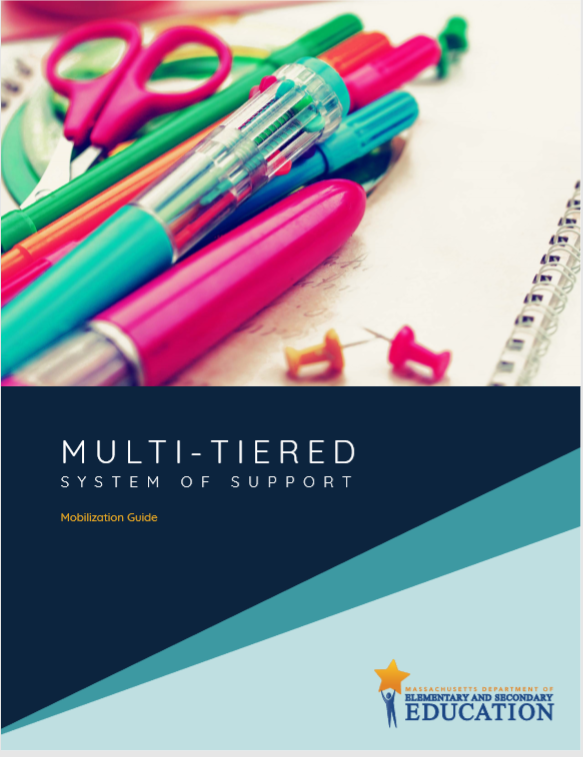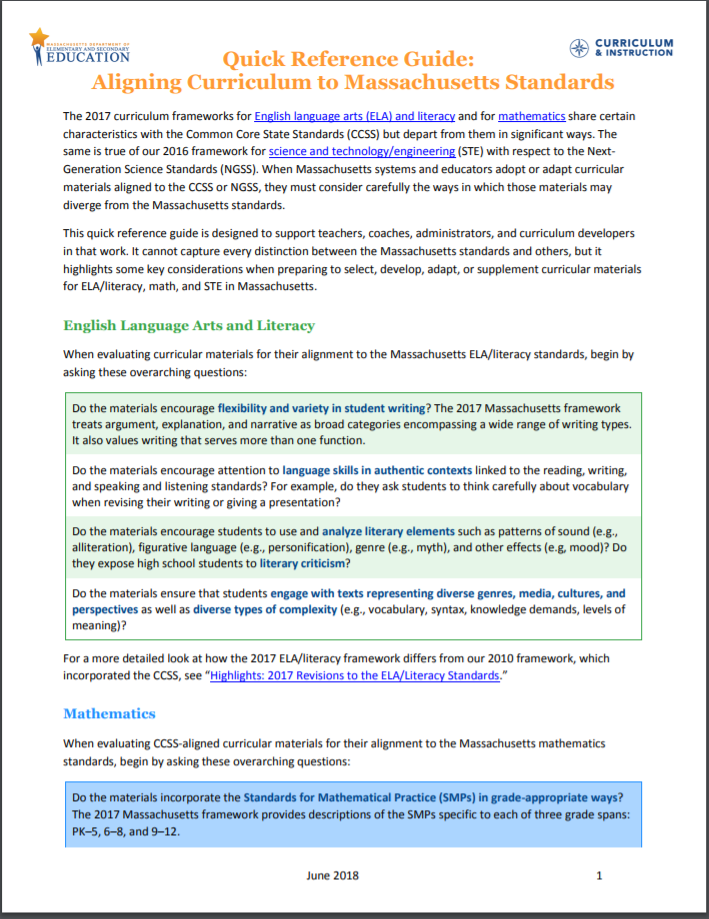Improving Math Instruction for Students with Disabilities Protocols for Mathematics and Special Education Leadership Teams
/This series of five protocols are designed to promote collaboration between mathematics and special educators to improve math instruction and outcomes for all students including students with disabilities. The protocols are intended to assist district or school-based leadership teams by providing a structure for developing a shared vision, common language and foundational knowledge on mathematics instruction and the instructional needs of students with disabilities. These protocols are the result of a four-year collaboration between the Offices of Science, Technology, Engineering and Mathematics and the Special Education Planning and Policy at the Department of Elementary and Secondary Education, EDC and math and special educators from the districts participating in the Massachusetts Urban Math Support Network.
Resources
Protocol 1 Resources: Shared Beliefs About Mathematics Instruction for Students with Disabilities
Protocol 2 Resources: Essential Understandings About Students with Disabilities
Protocol 3 Resources: Essential Understandings About Rigorous Mathematics Instruction
Protocol 4 Resources: Aligning Barriers and Strategies
Protocol 5 Resources: Using an Accessibility Framework to Support a Group of Students
Source
Massachusetts Department of Elementary and Secondary Education
Education Development Center, Inc.
























